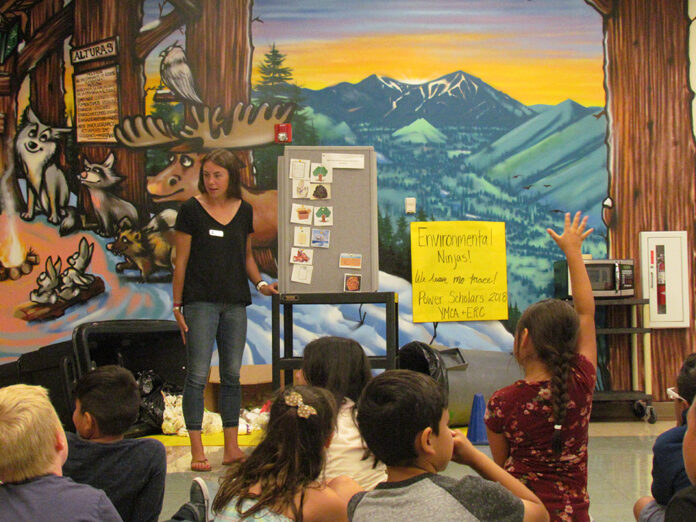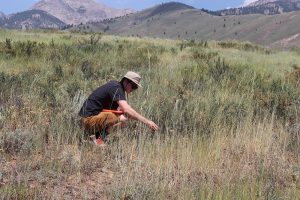
By Hayden Seder

The Environmental Resource Center (ERC) in Ketchum has three interns working for the summer, gaining experience in the environmental field while simultaneously helping to make the Wood River Valley more sustainable and environmentally friendly.
Two Pesticide Action interns were brought on board this summer—Ty Reinemann and Jake Gorham—as well as a Recycling Outreach and Action Intern, Emily Thayer.
According to ERC Executive Director Hadley DeBree, the ERC typically has up to 10 applicants per internship position, ranging from high school-age students to college age to those just out of college. This year, the organization anticipated the hiring of only two interns but was able to hire a third due to funding from the National Forest Foundation.
“For both internship positions, we are looking for interns who have a background or strong interest in the natural sciences, have a passion for the goals of the ERC, and have a personal commitment to environmentally-friendly actions,” DeBree said.
Both Reinemann and Gorham are Pesticide Action Interns, a position that works to reduce the use of pesticides, herbicides and synthetic fertilizers in the Wood River Valley. Outreach focuses on integrated pest management practices and the interns work with the U.S. Forest Service in weekly maintenance of the Wood River Community Knapweed Bio-control Insectary where root-boring weevils are being grown to provide a free, non-chemical method of noxious weed control.
DeBree explains that candidates for this positions typically have had experience with hard sciences and geographic information systems, though those aren’t a requirement.
Reinemann is a Ketchum native and graduated from Cal Poly San Luis Obispo in 2018. In the fall, he plans to attend graduate school at the University of Idaho to research wildfires and pine beetle outbreaks. Reinemann began working for the ERC in 2013 and returned to the organization most summers while in college.
“The Pesticide Action Internship has been a great stepping stone into my professional career,” Reinemann said.
Gorham, also a native of the Wood River Valley, will be a senior at Wood River High School this fall. Gorham has long been passionate about the environment and learning, taking courses such as AP [Advanced Placement] Biology and AP Environmental Studies and leaning more about the effects on ecosystems from excess nitrates, phosphates and pesticides.
“I decided on this internship because I wanted to get some experience in the science field before I went to college,” Gorham said. “I thought that this program would be an excellent introduction to working in the field of science and I find it extremely interesting.”
Emily Thayer, the ERC’s Recycling Outreach and Action Intern, works in partnership with Blaine County and Clear Creek Disposal to conduct education on best recycling practices, facilitating recycling at community events and offering a collection site of many recyclable items, including plastic film, batteries, and electronics.
Thayer also grew up in the Wood River Valley and went on to foster her love for the outdoors at Cal Poly San Luis Obispo where she is studying anthropology and environmental sustainability.
“In this internship, I get to be a part of growing the success of the recycling program in our beautiful Valley,” Thayer said. “Just in my first couple of days at the ERC, I quickly learned how multifaceted and complex recycling truly is.”
Both internship positions at the ERC typically run from June through August, depending on the interns’ schedule and availability. Pesticide Action Interns work around 160 hours in that time period and typically work two to three days a week. The Recycling Action and Outreach Intern works around 115 hours in total and also two to three days a week. There is no “typical day” for an ERC intern, as interns might spend one day working in the field collecting native seeds and mapping noxious weed populations to working in the ERC office to attending community events like Ketch’em Alive for “boots on the ground” recycling education.
“As a small organization, we welcome the additional resources as these interns allow us to make significant progress in these two programs,” DeBree said. “One of the most rewarding parts of my job is following how our staff and interns grow, what interests they develop while working at the ERC, and how their experience at the ERC shapes their future careers and interests.”


